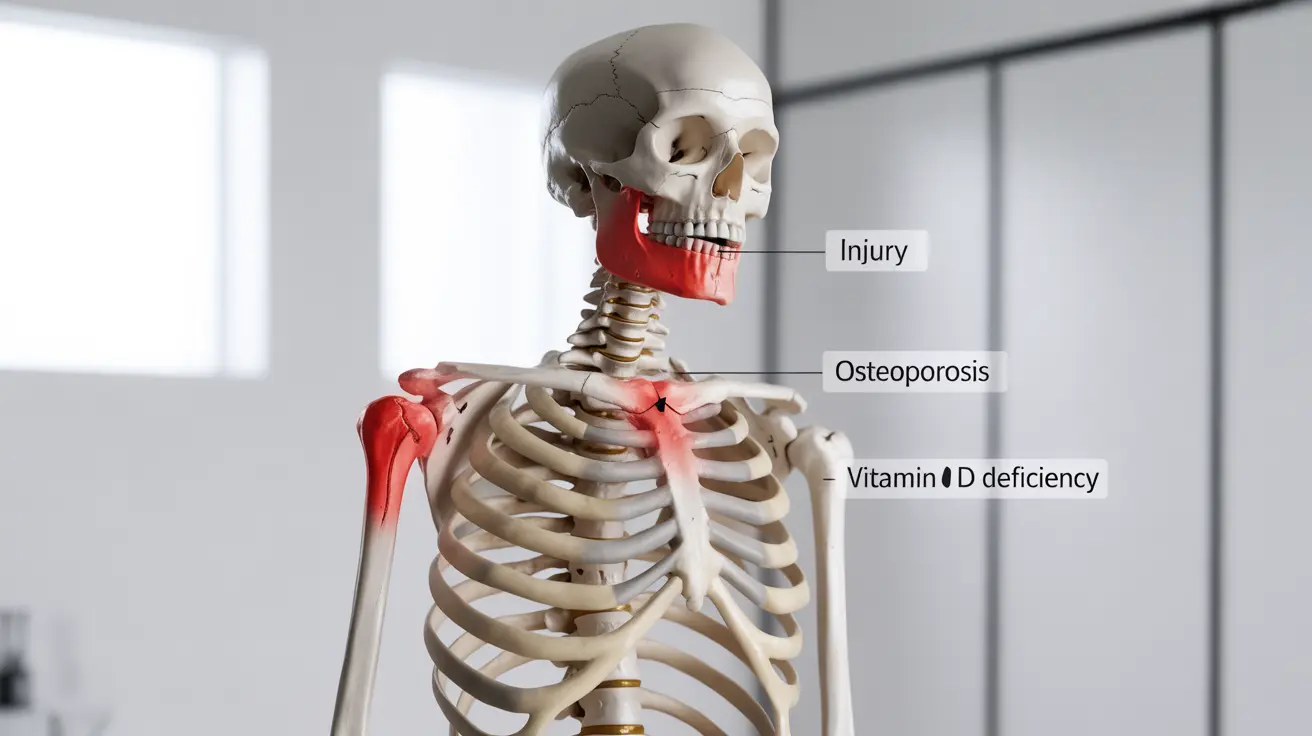If you've ever wondered "why do my bones hurt," you're not alone. Bone pain can be a concerning symptom that affects people of all ages and can significantly impact daily life. Unlike muscular pain or joint discomfort, bone pain often feels deep, penetrating, and can be particularly distressing.
Understanding the underlying causes of bone pain is crucial for proper diagnosis and treatment. From minor injuries to more serious conditions, bone pain can signal various health issues that require different approaches to management and care.
Common Causes of Bone Pain
Bone pain can arise from numerous conditions, ranging from temporary injuries to chronic health issues. Here are some of the most frequent causes:
Injury and Trauma
Physical injuries are among the most common reasons for bone pain. These can include:
- Fractures and stress fractures
- Bone bruises
- Sports injuries
- Accidents or falls
Medical Conditions
Several medical conditions can lead to bone pain:
- Osteoporosis
- Arthritis
- Bone infections (osteomyelitis)
- Vitamin D deficiency
- Fibromyalgia
- Bone cancer or metastatic cancer
When to Seek Medical Attention
While some bone pain may resolve on its own, certain symptoms warrant immediate medical attention:
- Severe pain following an injury
- Pain that persists for more than a few days
- Unexplained bone pain
- Pain accompanied by fever or weight loss
- Difficulty moving or bearing weight
- Visible deformity or swelling
Diagnosis and Evaluation
Healthcare providers use various methods to diagnose the cause of bone pain:
Physical Examination
Your doctor will conduct a thorough physical examination and review your medical history, including any recent injuries or chronic conditions.
Diagnostic Tests
Common diagnostic procedures may include:
- X-rays
- MRI scans
- Blood tests
- Bone scans
- Bone density tests
Treatment Options
Treatment approaches vary depending on the underlying cause of bone pain:
Conservative Treatment
Many cases respond well to conservative management:
- Rest and activity modification
- Over-the-counter pain medications
- Physical therapy
- Hot and cold therapy
- Proper nutrition and supplementation
Medical Interventions
More severe cases may require:
- Prescription medications
- Antibiotics for infections
- Hormone therapy
- Surgery in some cases
- Specialized treatments for specific conditions
Prevention and Management
Several strategies can help prevent or manage bone pain:
- Regular exercise, especially weight-bearing activities
- Adequate calcium and vitamin D intake
- Maintaining a healthy weight
- Proper posture and body mechanics
- Regular medical check-ups
- Smoking cessation
Frequently Asked Questions
Why do my bones hurt and what are the most common causes of bone pain? Bone pain can result from various factors including injuries, infections, nutritional deficiencies, and medical conditions like osteoporosis. The most common causes include physical trauma, vitamin D deficiency, and age-related bone conditions.
When should I see a doctor for persistent or unexplained bone pain? Seek medical attention if bone pain persists for more than a few days, occurs without obvious injury, is severe, or is accompanied by other symptoms like fever, weight loss, or difficulty moving.
How are bone pain and bone infections or cancer related? Bone infections (osteomyelitis) and cancer can cause persistent, severe bone pain. These conditions often produce additional symptoms like fever, fatigue, and unexplained weight loss. Early detection and treatment are crucial for better outcomes.
What treatment options are available for relieving bone pain caused by injuries or diseases like osteoporosis? Treatment options include pain medications, physical therapy, lifestyle modifications, and specific treatments for underlying conditions. For osteoporosis, treatments may include bone-strengthening medications, calcium supplements, and weight-bearing exercises.
Can hormonal changes or aging cause bone pain, and how can it be managed? Yes, hormonal changes and aging can affect bone density and cause pain. Management strategies include hormone therapy when appropriate, regular exercise, proper nutrition, and maintaining good bone health through lifestyle modifications and medical interventions as needed.




